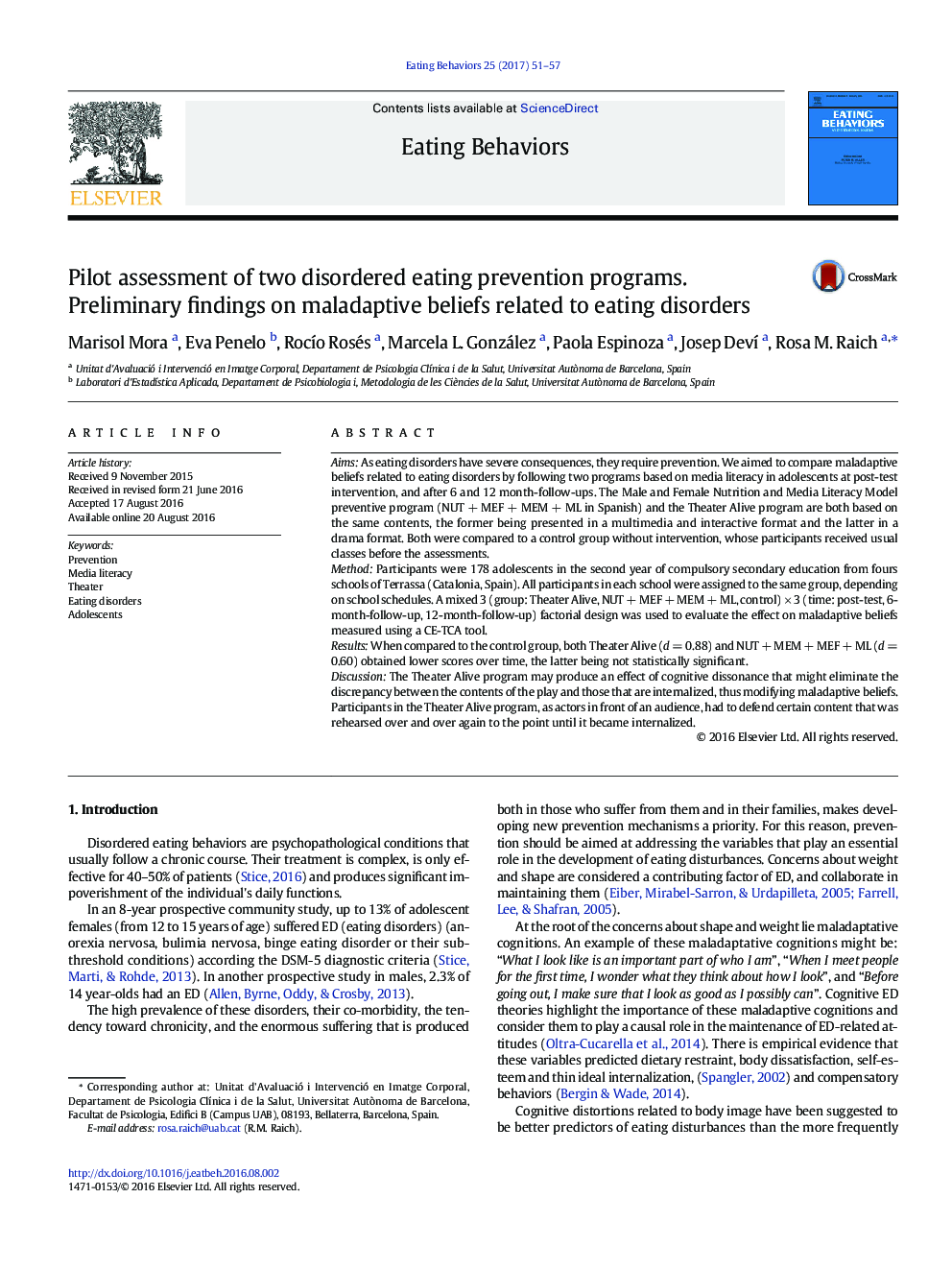| Article ID | Journal | Published Year | Pages | File Type |
|---|---|---|---|---|
| 5038774 | Eating Behaviors | 2017 | 7 Pages |
â¢Media Literacy prevention programs can be useful tools for preventing maladaptive cognitions related to eating disorders.â¢Theater in Education for Health can be more effective in changing cognitions than multimedia and interactive program.â¢Repeating content in front of an audience might produce the greatest change in individual beliefs.
AimsAs eating disorders have severe consequences, they require prevention. We aimed to compare maladaptive beliefs related to eating disorders by following two programs based on media literacy in adolescents at post-test intervention, and after 6 and 12 month-follow-ups. The Male and Female Nutrition and Media Literacy Model preventive program (NUT + MEF + MEM + ML in Spanish) and the Theater Alive program are both based on the same contents, the former being presented in a multimedia and interactive format and the latter in a drama format. Both were compared to a control group without intervention, whose participants received usual classes before the assessments.MethodParticipants were 178 adolescents in the second year of compulsory secondary education from fours schools of Terrassa (Catalonia, Spain). All participants in each school were assigned to the same group, depending on school schedules. A mixed 3 (group: Theater Alive, NUT + MEF + MEM + ML, control) Ã 3 (time: post-test, 6-month-follow-up, 12-month-follow-up) factorial design was used to evaluate the effect on maladaptive beliefs measured using a CE-TCA tool.ResultsWhen compared to the control group, both Theater Alive (d = 0.88) and NUT + MEM + MEF + ML (d = 0.60) obtained lower scores over time, the latter being not statistically significant.DiscussionThe Theater Alive program may produce an effect of cognitive dissonance that might eliminate the discrepancy between the contents of the play and those that are internalized, thus modifying maladaptive beliefs. Participants in the Theater Alive program, as actors in front of an audience, had to defend certain content that was rehearsed over and over again to the point until it became internalized.
